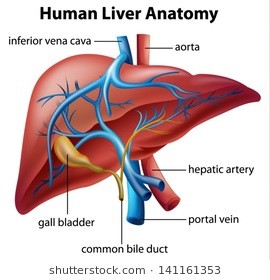Milk Thistle aka Silymarin- Non-conventional therapy for anti-inflammatory, apoptotic, anti-angiogenic, anti-metastatic, anti-oxidant and integrative action-
I’ve taken and written about a host of evidence-based, non-conventional multiple myeloma therapies. Silymarin aka Milk Thistle is yet another of these MM therapies. The additional benefit of milk thistle however, is its ability to promote liver health. And those of us who have endured multiple myeloma chemotherapies, both induction as well as stem cell transplants (ASCT), have probably damaged our livers. MM chemo is highly toxic.

Let’s face it. The liver is one of the, if not the most important organs. Coming from someone who suffers from chemotherapy-induced cardiomyopathy, that’s saying a lot.
Naming your most important organ is like asking a parent to choose a favorite child. All or our organs have strengths and weaknesses. However, everyone can agree that the liver health is critical to human life. Further, anyone who has undergone chemotherapy knows that his/her liver has been hammered. Healing liver damage is also critical to human life.
In addition to citing the benefits to your liver of milk thistle supplementation, the second article linked below cites vitamin D to reduce the risk of liver cancer. In short, supplementation can make for a healthier liver.
I supplement with and recommend Life Extension European Milk Thistle-Advanced Phospholipid Delivery Softgels–
Have you been diagnosed with multiple myeloma? What stage? What symptoms? I am both a MM survivor and MM coach. Please scroll down the page, post a question or comment and I will reply ASAP.
thank you,
David Emerson
- MM Survivor
- MM Coach
- Director PeopleBeatingCancer
Recommended Reading:
Multiple myeloma
Multiple myelomas (MM), a monoclonal tumor of plasma cells, is the second most frequent and age-adjusted hematological malignancy. The incidence of MM is 100,000 per year in the USA and Europe [36]. MM cells were characterized by extensive somatic hypermutation of immunoglobulin genes, high bone marrow dependence, and absence of IgM expression. So far, the treatments of MM are primarily chemotherapies in conjunction with proteasome inhibitors (PIs), bone marrow (BM) transplantation, and antiresorptive agents such as bisphosphonates corticosteroids. Silibinin has, however, been demonstrated to exert anti-multiple myeloma efficacy. Silibinin inhibition of cellular proliferation and increased apoptosis via repression of PI3K/Akt-(mammalian target of rapamycin) mTOR signaling have been recently reported to occur in U266 MM cells [37]…”
“The aim of the present study was to investigate whether silybin suppresses the proliferation and induces apoptosis of multiple myeloma (MM) cells and to elucidate its molecular targets.
The results revealed that silybin restrained the proliferation and enhanced the apoptosis of U266 cells. Furthermore, silybin inhibited the protein expression of PI3K, p‑Akt and p‑mTOR in U266 cells. Of note, inhibition of PI3K facilitated silybin‑mediated reduction of mTOR activation, cell proliferation and induction of apoptosis in U266 cells, while activation of PI3K attenuated the effects of silybin. In conclusion, silybin suppressed cell proliferation and promoted apoptosis of U266 cells via PI3K/Akt-mTOR signaling pathways…”
- “Silymarin, a flavonolignan from milk thistle (Silybum marianum) plant, is used for the protection against various liver conditions in both clinical settings and experimental models… The number of studies has established the cancer chemopreventive role of silymarin in both in vivo and in vitro models.
- In addition, silymarin also showed anti-inflammatory as well as anti-metastatic activity. Further, the protective effects of silymarin and its major active constituent, silibinin, studied in various tissues, suggest a clinical application in cancer patients as an adjunct to established therapies, to prevent or reduce chemotherapy as well as radiotherapy-induced toxicity…
- This mini-review briefly summarizes multi-targeted chemopreventive and interventive targets and mechanisms of silymarin/silibinin in various in vitro and in vivo cancer models. All these results validate the pharmacological safety of silymarin, which is needed for effective chemopreventive as well as the chemotherapeutic agent. Silymarin exerts its anticancer effects by multiple molecular mechanisms that could block all stages of carcinogenesis, initiation, promotion, and progression…”
APPIP ERROR: amazonproducts[
AccessDeniedAwsUsers|The Access Key Id AKIAJAJ37JVNL7OUU4CA is not enabled for accessing this version of Product Advertising API. Please migrate your credentials as referred here https://webservices.amazon.com/paapi5/documentation/migrating-your-product-advertising-api-account-from-your-aws-account.html.
]




